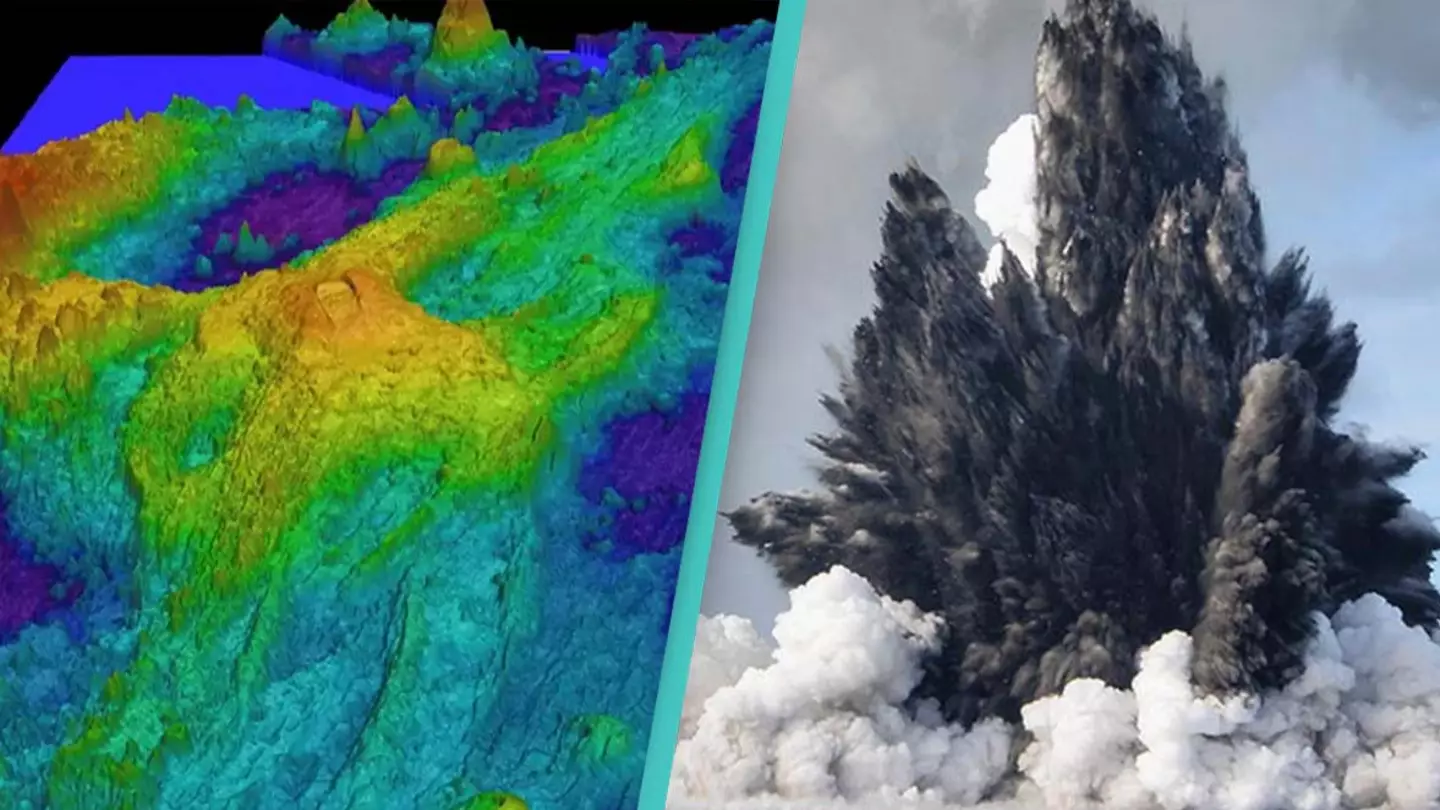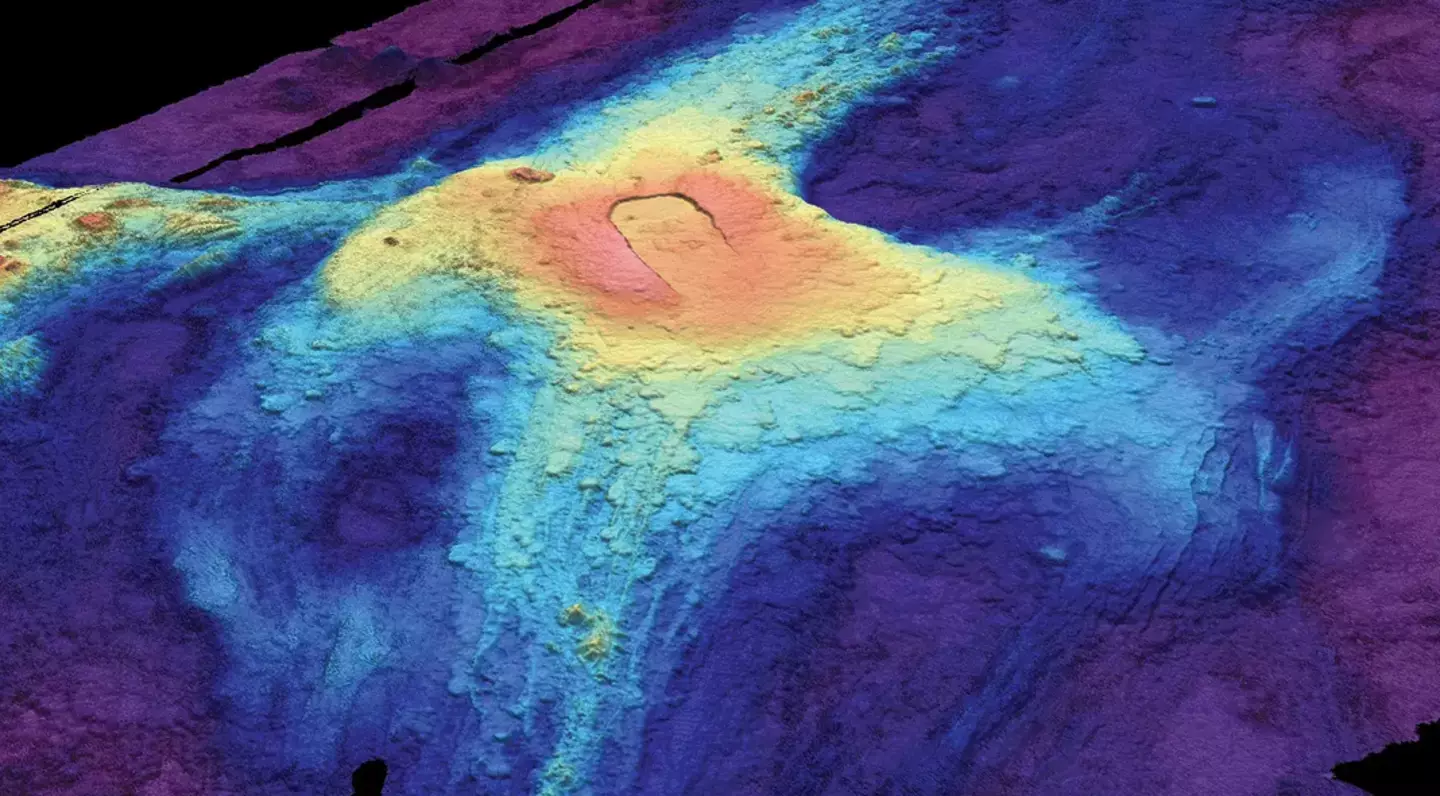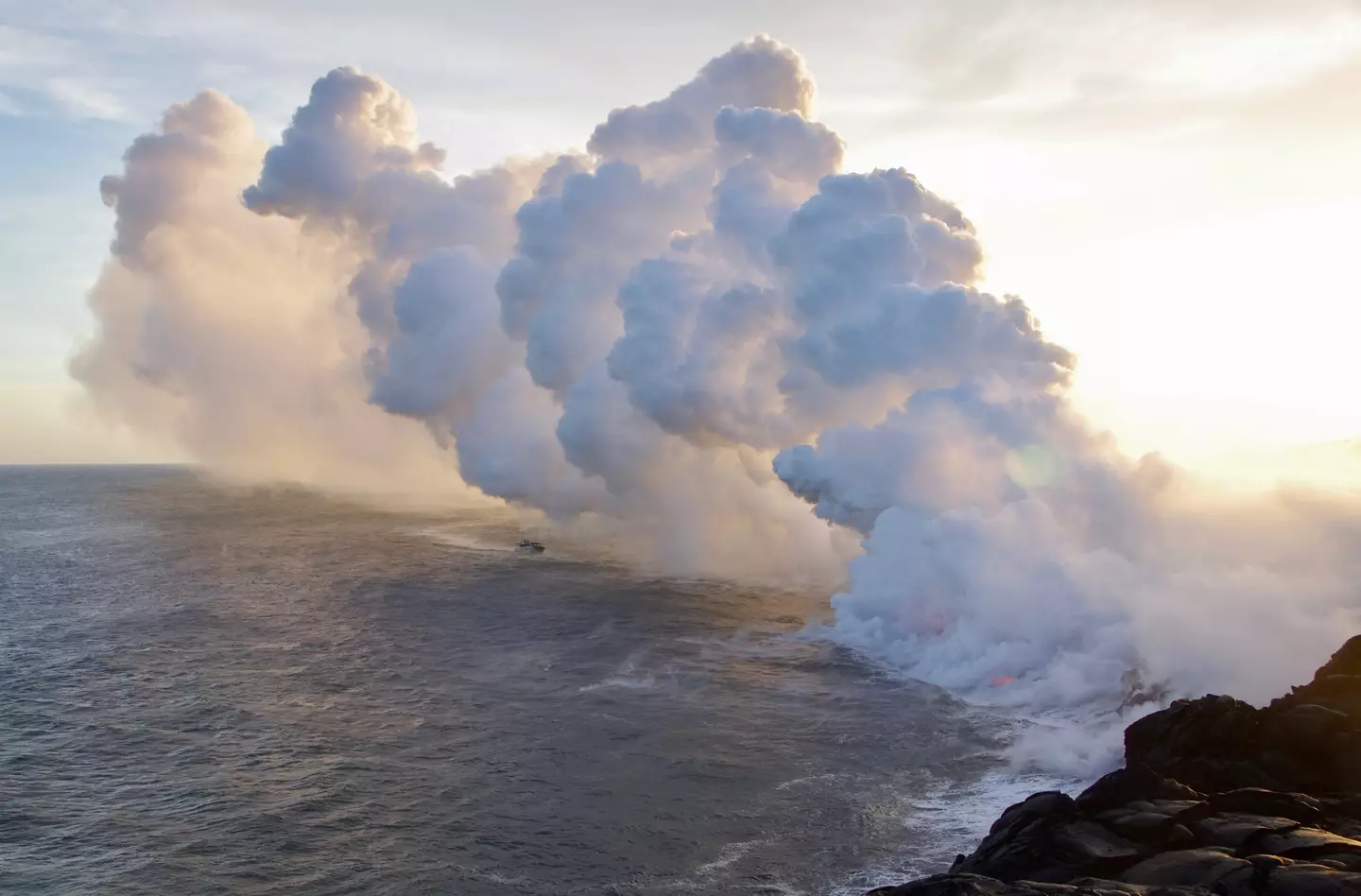
Here’s what happens when underwater volcanoes erupt following a warning issued by scientists regarding an upcoming blast.
To start off the New Year, experts have been speaking about an underwater volcano about 470 km off the coast of Oregon.
Axial Seamount stands at 1,100 meters tall with a diameter of 2km and is situated 1,400m below sea level.
Having last erupted in 2015, scientists say the volcano is showing signs of imminent activity, which suggests the volcano could erupt at some point this year.
Geologist Mark Zumberge, from the Scripps Institution of Oceanography, has described the volcano as ‘the most well-instrumented submarine volcano on the planet’.
Back in November, Axial’s surface swelled to the same height as before its last eruption in 2015.

A 3-D bathymetric seafloor map of Axial Seamount in July 2014 (Susan Merle/Oregon State University)
To put that scientifically, such revelation indicates that the magma has built up under the ground and increased the overall pressure within the volcano, according to experts.
Valerio Acocella, a volcanologist at Roma Tre University, has said the Axial volcano is a ‘very promising volcano’, which can help volcanologists garner a better understanding.
The expert warns of the potential for unexpected behavior from the volcano, stating: “There’s always a risk that a Volcano will follow a pattern that we haven’t seen before and do something unexpected.”
A 2025 eruption won’t revolutionize eruption prediction according to Acocella, but stated it would be a good step forward.
He added: “We’ll understand it better and that will help us understand other volcanoes, too.”
So, if the underwater volcano does erupt this year, what are the processes that will be happening?
Well, as per Ocean Explorer, volcanic eruptions beneath sea level are ‘characteristic of the rift zones where crustal plates are being formed’.
These rift zones have tectonic plates moving away from each other within them, and are also known as spreading center eruptions.

Underwater volcanoes are certainly a point of interest (Getty Stock Photo)
Because they are underwater, the eruptions cannot be seen from the surface – but that doesn’t mean nothing is going on down there.
These eruptions produce a rock called basalt, which Ocean Exploration states is the ‘principal’ rock in the makeup of the oceanic crust.
Such an eruption can result in the bombardment of the Earth’s crust, according to Ocean Explorer, which was the case with the infamous eruptions of Hawaiian volcanoes.
Underwater eruptions occur along all seafloor spreading centers, which are found in all of the Earth’s major ocean basins across the globe.
A submarine eruption can happen as a result of a magma plume rising through the Earth’s crust, which in turn overlays a melting are within the mantle.


